Agriculture & Environment
Mak Granted 10 Hectares in Poron, Napak to set up Livestock Café & Tick Control Demos
Published
2 years agoon
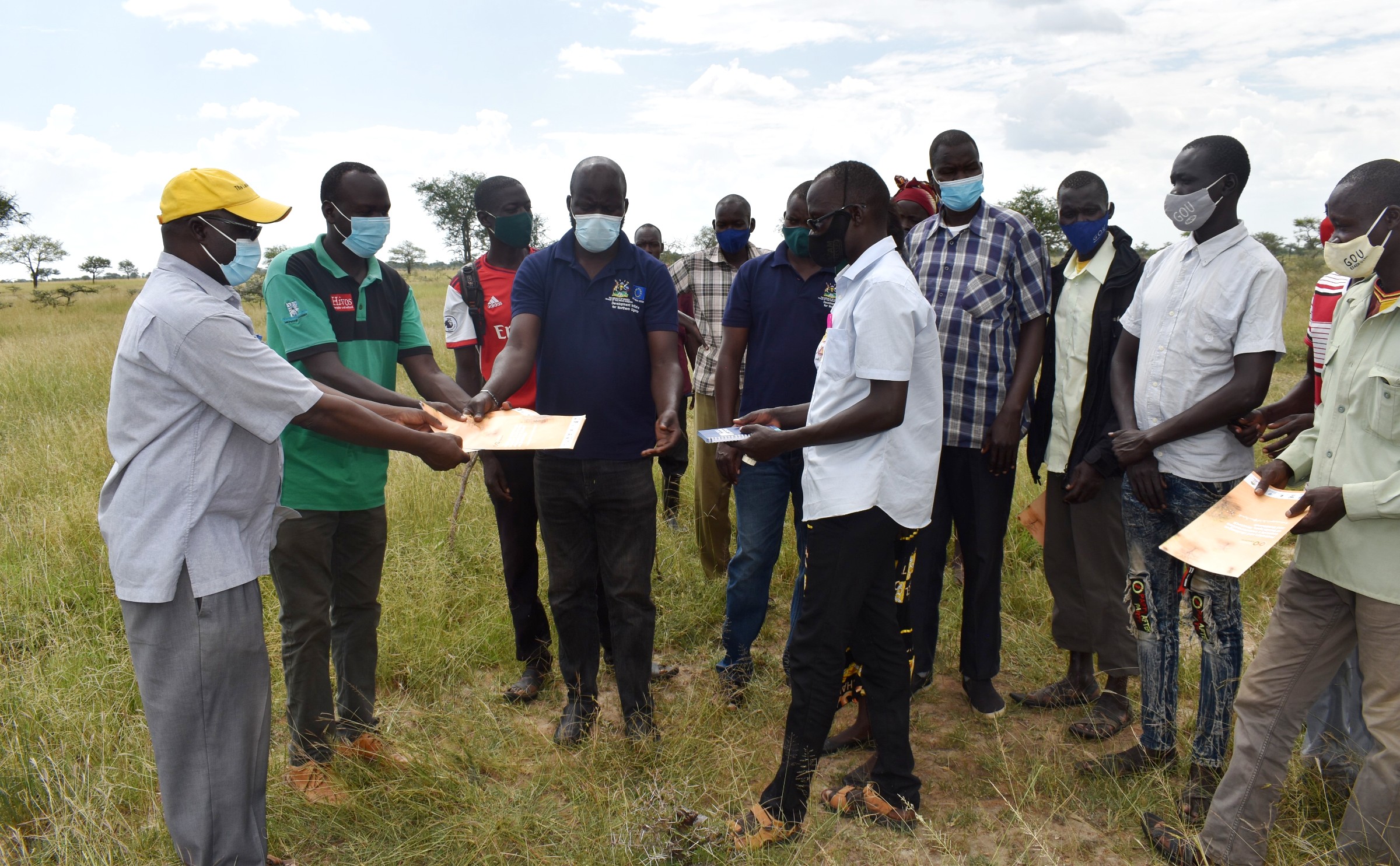
By Jane Anyango
Makerere University has been handed 10 hectares of land in Poron Sub-County, Napak District to set up a livestock café with a tick control demonstration site. The land was handed over from Poron Sub-County to the Napak and Moroto District Technical and Political officials and then to the University on 23rd October 2021.
The demonstration site and knowledge hub are to be implemented under the Drylands Transform project funded by the Swedish Research Council for Sustainable Development, aimed at addressing complex challenges in the East African dylands such as climate change, food insecurity, land and ecosystem degradation and weak institutions.
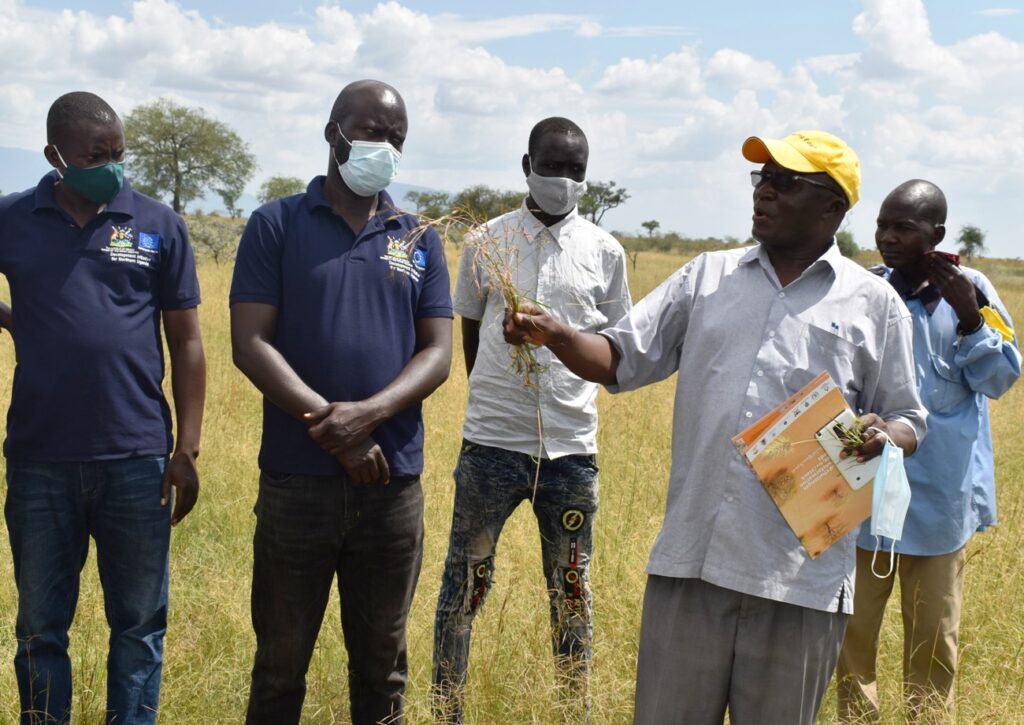
Drylands Transform investigates the inter linkages between land health, livestock based livelihoods, human wellbeing and land governance mechanisms in order to contribute to transformative change and sustainable development of the social ecological system in drylands of East Africa.
The 10 hectares were handed over following a series of meetings between the Makerere University research team and Napak and Moroto District Local Governments and Poron Sub-County Technical and Political officials, wherein the research team sought permission and support to implement five-year project activities for the benefit of the agro- pastoralists and pure pastoralists.
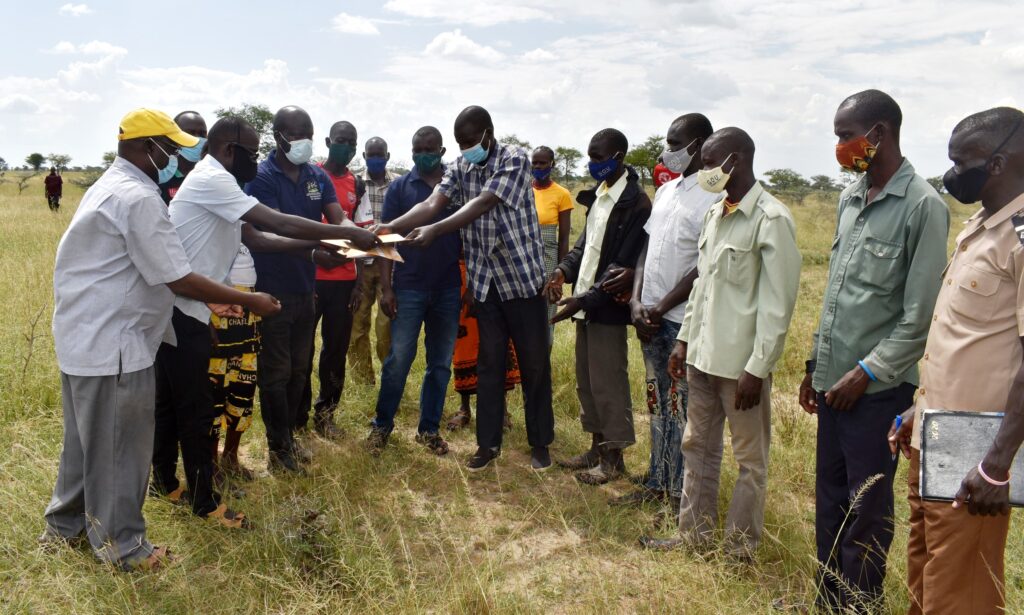
Makerere University’s Principal Investigator Prof. Denis Mpairwe thanked the Parish, Sub-County and District technical and political units for the support and offer. He said the offer followed field visits and meetings with stakeholders, users and land owners as well as the Sub-County officials in areas where the project activities will be piloted.
“We were able to meet all the Councilors, Sub-County Chiefs and all the Local Council Chairpersons of the parishes where we shall be operating. We were welcomed in the area and there was willingness to work with the people on the Drylands Transform project.
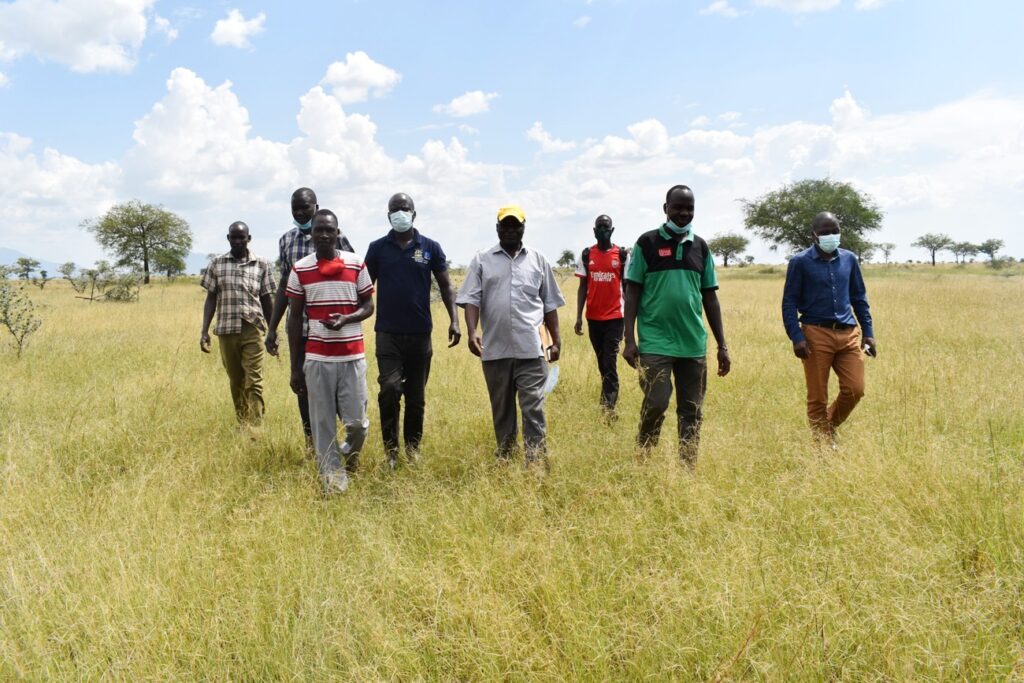
What was amazing was that when we came for recognizance, we met the community and when we left they went ahead and demarcated the land. And later when they found it was not adequate they went ahead to give us another piece across the road but still within the same area and so we secured the 10 hectares that we need”, Prof. Mpairwe said.
The other achievement according to Prof. Mpairwe was that the communities were all in acceptance and agreed to work with the project team that is going to come under the LDSF – Land Degradation Surveillance Framework expected of them in December and January during the dry spell.
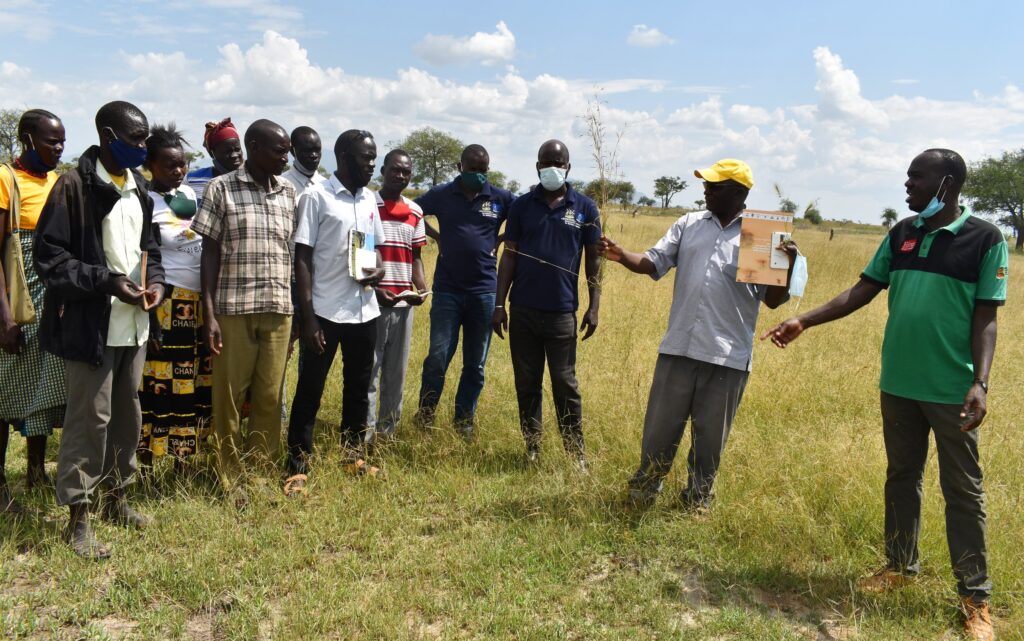
The third achievement he said, was that the community accepted to work with enumerators scheduled to come to conduct household surveys on people’s livelihoods with priority participants being the local residents as long as they hold degrees and diplomas.
The Local Council III (LCIII) Chairperson Poron Mr. Agella John summed it all up by saying that the Sub-County had already given the University whatever it required and that the parties had better stop talking and embark on action. Through consensus all the Sub-County and Parish Chiefs as well as District Officials had agreed on the land for the project.
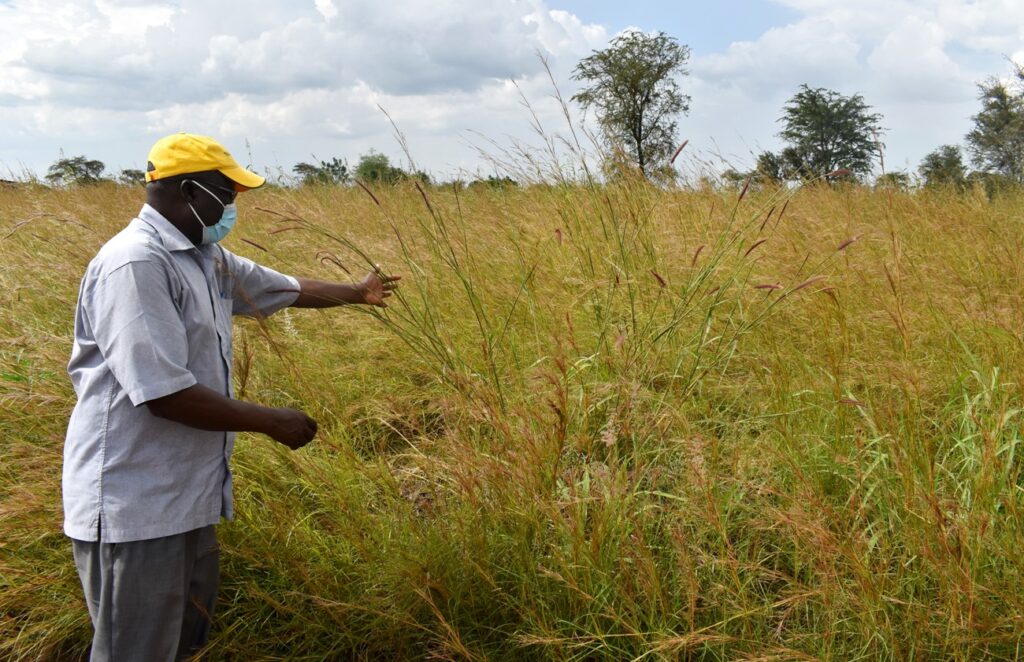
They also noted that as a Sub-County they didn’t have a heavily degraded or bare area as sought by the project team but unanimously agreed with the University team that Matany was different from the other study sites as it falls under the rain belt where they are expected to look at degradation not by the bare ground but by the loss of important species.
“We went to the site with the entire team in the afternoon, and were taken around the land, given demarcations and then there was an official hand over of the land from the community to the Sub-County, from the Sub-County to the District, then from the District to the project, and it was made clear that this land is still theirs”. The PI explained.
The community appreciated the humble approach the University used to request for land expressing happiness and readiness to work with the project team.
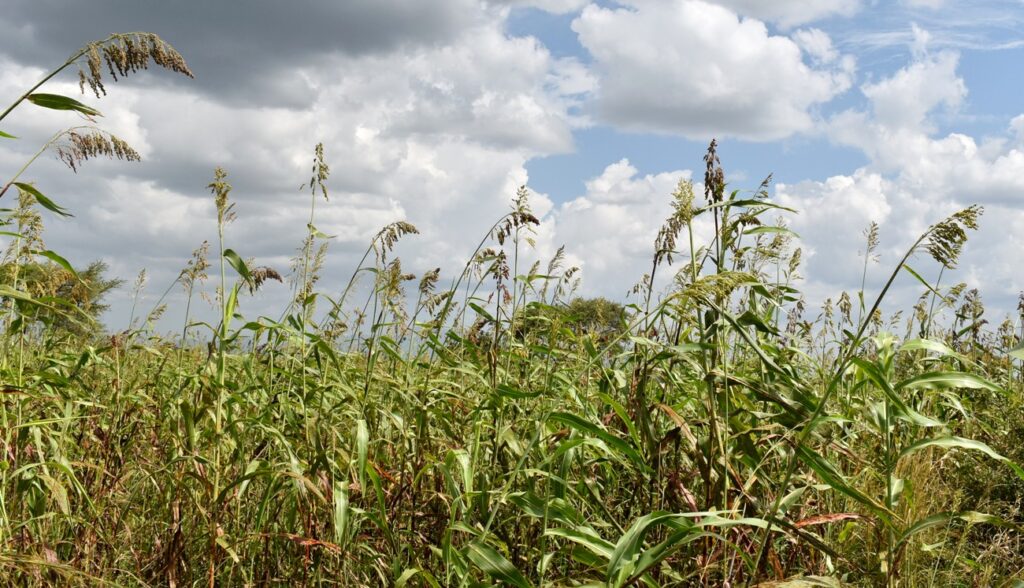
They were also appreciative that the project was focusing on livestock, crops and land use which were important to them.
The community members also introduced the research team to the main crops grown including, green gram, sunflower, sorghum, maize and cassava. They were interested in seeing how green gram can be improved as the major cash crop.
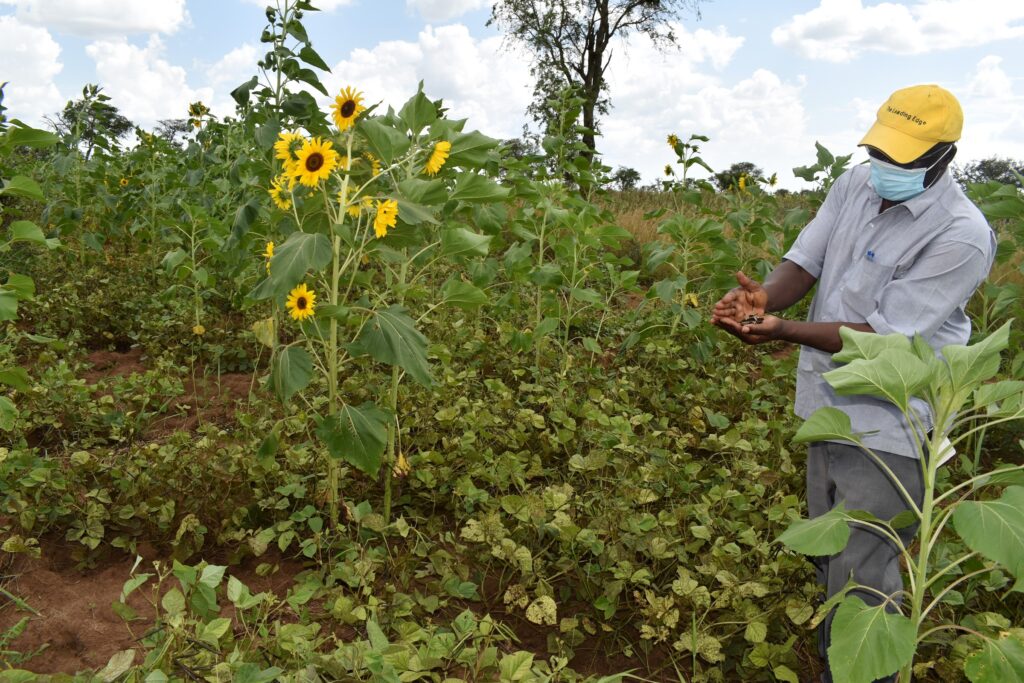
The community in addition said, since the project was looking at the degraded areas it has to address the problem of water scarcity too.
The research team was also informed that most of the population never went to school but, what they have seen in the livestock cafe as a knowledge sharing centre, is a school where they will acquire practical skills, utilize the knowledge and teach others.
The community acknowledged poor nutrition of the animals and entire families as a major factor affecting them and wanted researchers to address the issue of controlling ticks on their livestock as it poses a big challenge.
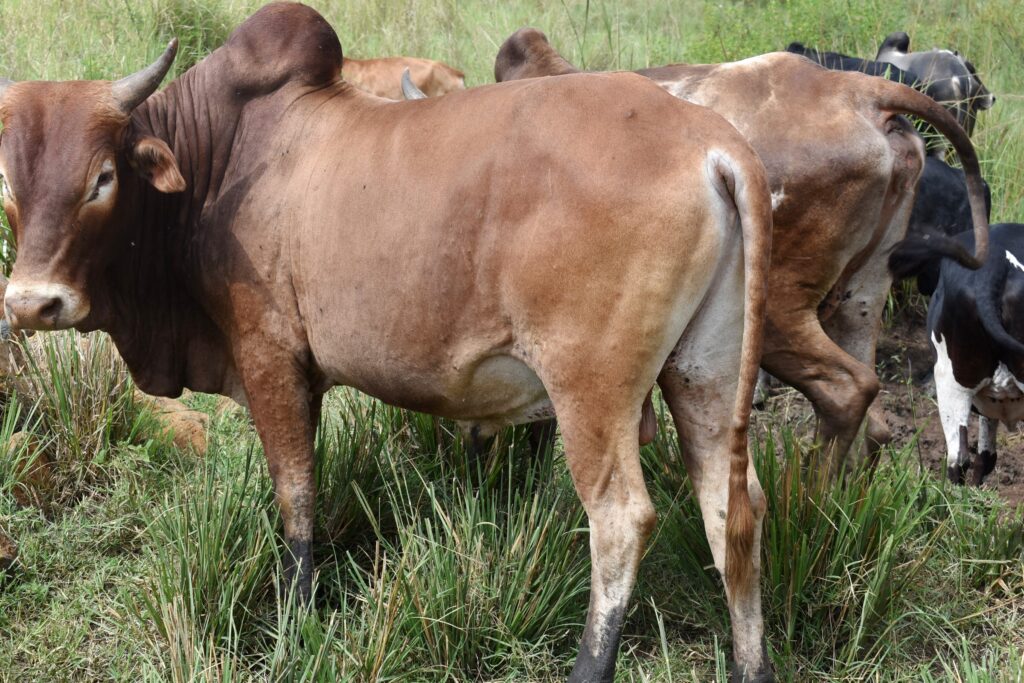
The acquired land according to Prof. Mpairwe is to be used as a demonstration site termed as a livestock café. In this area the project wants to demonstrate the sustainable way of utilizing the land without causing degradation but also improve on its productivity and in the long run, improve the livelihoods of the people.
“Within the livestock cafe we are going to look at how to improve all the crops, the pasture and trees in the area. We are also trying to address the challenges of the drylands where the major factors are water and fodder and that is why we want to work with you to show you the sustainable ways of conserving water and utilizing it”, Prof. Mpairwe said.
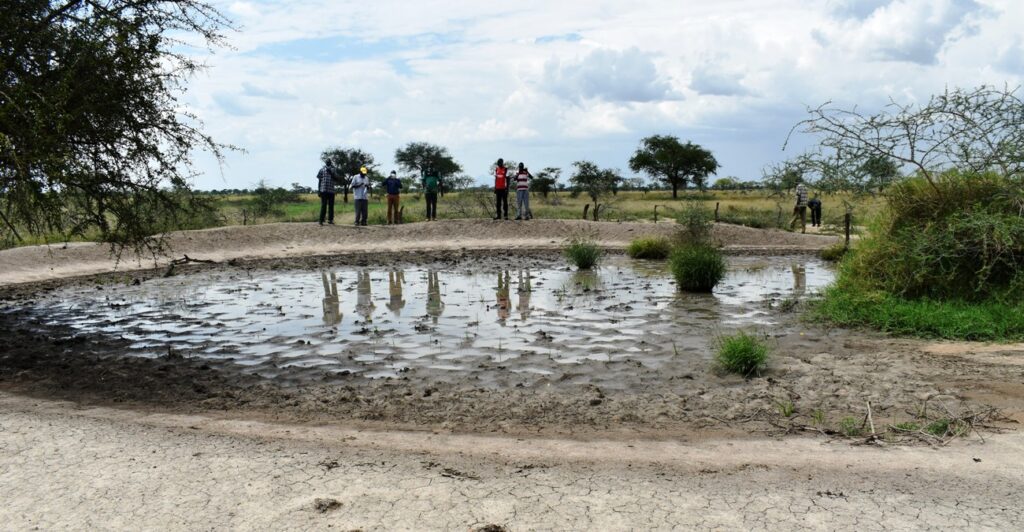
He reported that the site allocated has a water tank that is silted and that this was a chance for the project to de-silt it so as to provide enough water for the livestock café in addition to setting up a spray race to control ticks.
“Our target is knowledge sharing, teaching the people on what to do, to conserve the land, increase on its productivity, stop degradation, improve animal and human health and in the long run, improve the livelihoods of people.
In a nutshell, we scored high in Napak. We were able to get a team of willing agro-pastoralists stakeholders to work with us after understanding what the project is about. By the fourth year project mark, the people would have learnt how to utilize the land, increase productivity of both the crop and livestock and got enough knowledge to produce from that land, knowledge to give to others and there is high potential of making money especially from feeds and hay which is becoming a big commodity in Uganda”, Prof. Mpairwe stated.
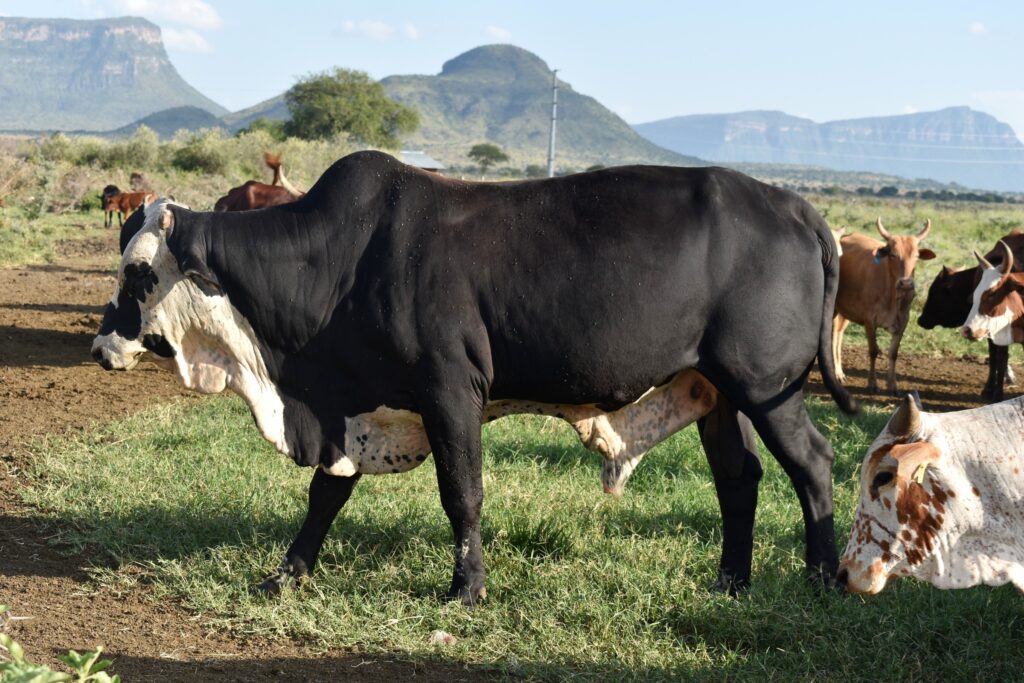
Napak District Agricultural Officer Mr. Nangiro Abrahams said they understood the whole concept of the Drylands Transform project as one of the longest projects the district will host.
The Agricultural Officer thanked the community of Napak and Poron Sub-County in particular for the teamwork saying, where the district leadership had reached in terms of preparation was amazing.
“As soon as we heard of the coming of the project, we were able to take up the matter and share it with our community leaders. As the District Agricultural Officer, we have interested the community to take up developmental interventions in the area and Poron Sub-County in particular. I have also welcomed the project and I am confident that the community will cooperate for the project to achieve the desired objectives”, Mr. Nangiro said.
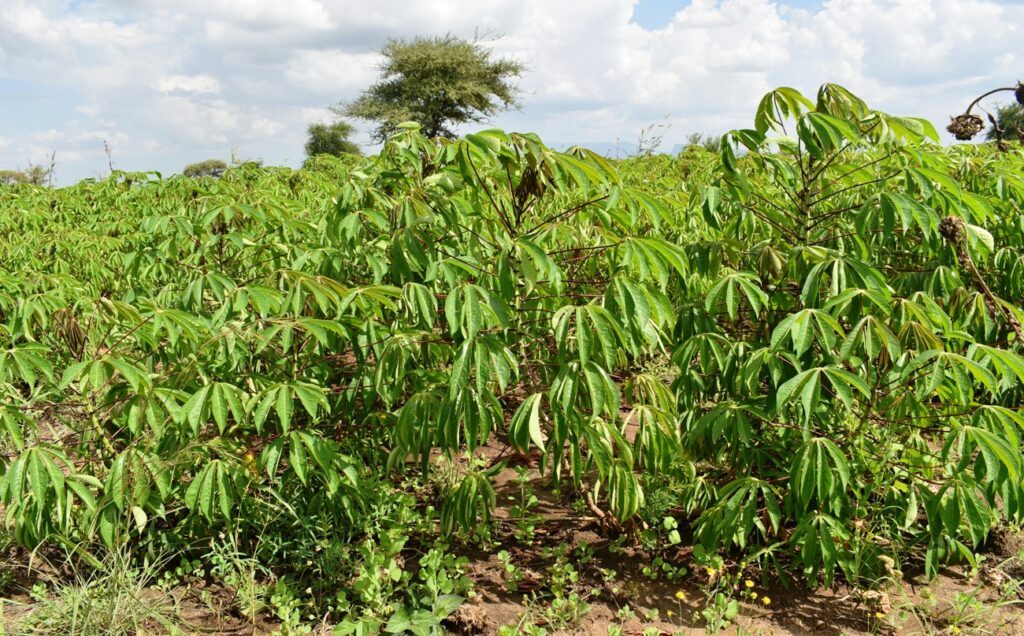
Nangiro noted that the main aspects of the project which are landscapes, livestock and livelihoods require a lot of demonstrations in the community. He said the community had gone ahead with the leadership of the Sub-County and District to identify some portion of land of over 20 acres where the project will be located.
The Agricultural Officer said, the mode of project delivery focuses on livestock cafes and the land given by the community will be owned by the Sub-County with all demonstrations about livestock management, crop production, water conservation, pasture management done within the given plot of land.
Mr. Nangiro said after the project, the demonstration site will continue acting as a school for the community and many who have not gone to school for the sustainability of the project.
He said Napak District Local Government welcomes interventions that are geared towards the attainment of the Sustainable Development Goals and works together with non-state actors to complement government programs to fill the gaps in advisory services, financing and staffing.
“Many of our people depend on livestock for their livelihood and this aspect has been so much affected because of the changing climate and poor agronomic practices and this is where other actors have to come on board to work with government to find solutions.
Many of our farmers have gone into crop farming and have issues to do with non-adaption to good agricultural practices, lack of agricultural inputs, agro input dealers, agro processing where concerted effort is required”, Nangiro noted. The District Agricultural Officer called upon Makerere University to put more focus into research, practices, technologies and indigenous knowledge that has been lost over the years for better survival of the communities.
Jane Anyango is the Principal Communication Officer, College of Agricultural and Environmental Sciences (CAES)
You may like
-
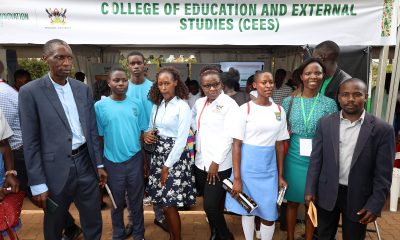

Call for Papers: Makerere University Journal of Research and Innovations in Teacher Education (RITE)
-
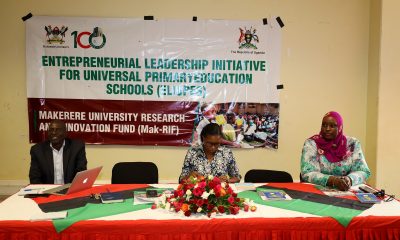

Project to boost entrepreneurship in UPE schools launched
-
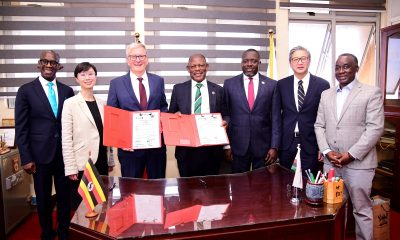

Strengthening Partnerships: Makerere University Welcomes Delegation from Western University, Ontario, Canada
-
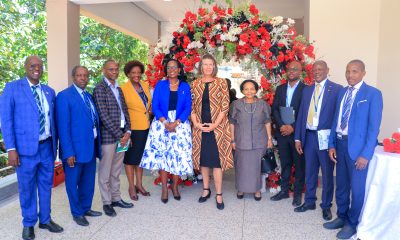

Infrastructure Expansion for MakSPH, Vital for Uganda’s Public Health System – Prof. David Peters
-
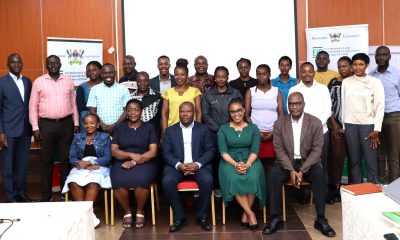

The Academia & Government Officials Identify Research & Data gaps in the Management of Natural Resources in Uganda
-
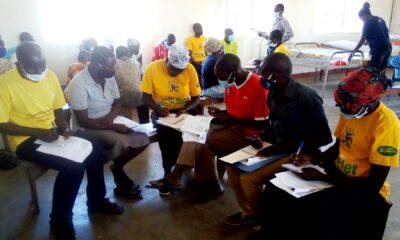

IDI Job Advert: Social Sciences Lead (1)
Agriculture & Environment
Mak-CAES Skills Agro-processors on Quality Standards
Published
1 week agoon
April 12, 2024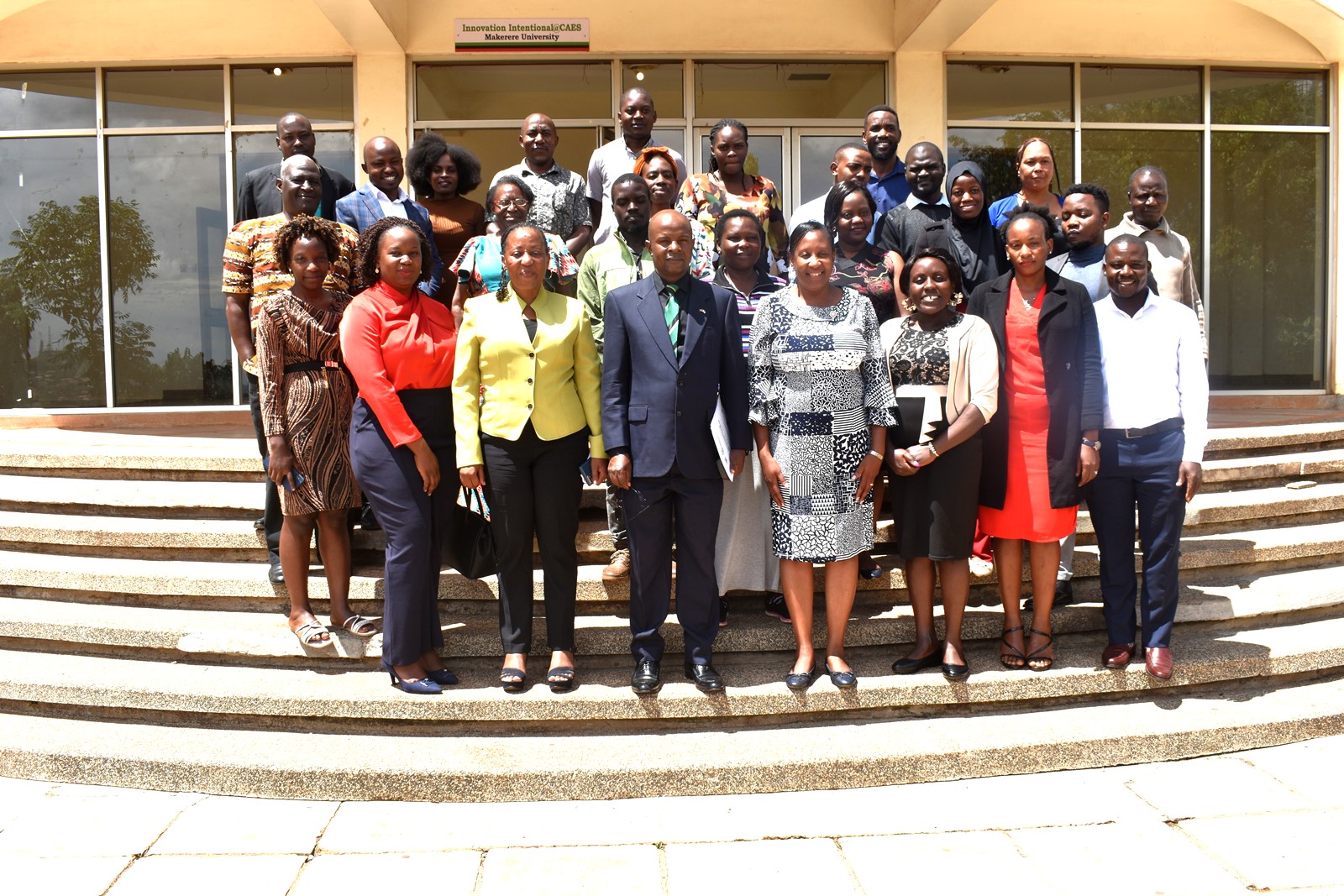
Overview
Agriculture has long been the backbone of Uganda’s economy, and the agro-processing industry plays a pivotal role in driving economic growth, job creation, and export earnings. Agro-processing is a key component of Uganda’s manufacturing sector accounting for almost 70% of total manufacturing output while manufacturing itself has accounted for approximately 8% of GDP over the last decade (Uganda Bureau of Statistics). However, many Micro, Small, and Medium Enterprises (MSMEs) in this sector face significant challenges in meeting quality standards, accessing markets, and adopting best practices.
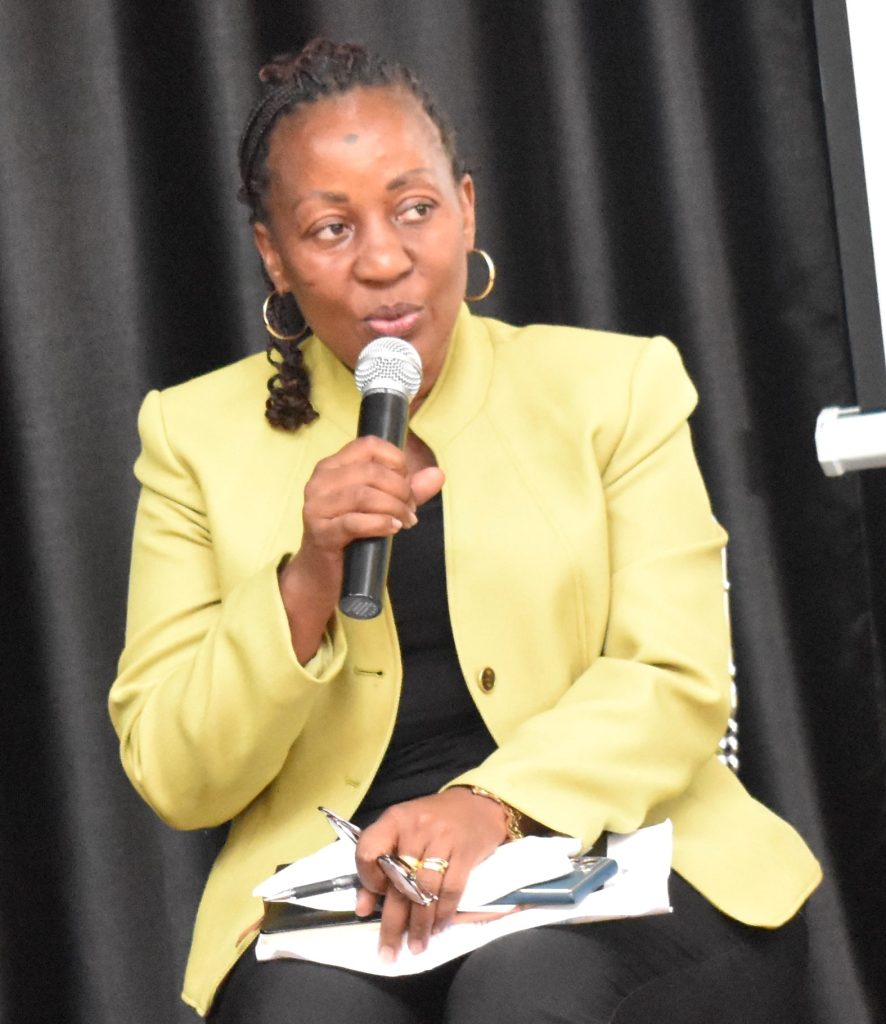
Makerere University’s contribution to the development of the sector
To contribute towards the improvement of the sector in Uganda, the School of Food Technology, Nutrition and Bio-engineering (SFTNB) at the College of Agricultural and Environmental Sciences (CAES), Makerere University, through a project titled; “Empowerment of the Agro-Processing Industry to meet the Quantity and Quality for Local and Export Market (EAPI Phase II)” has embarked on a transformative journey to empower agro-processors through practical skills training, mentorship, and support.
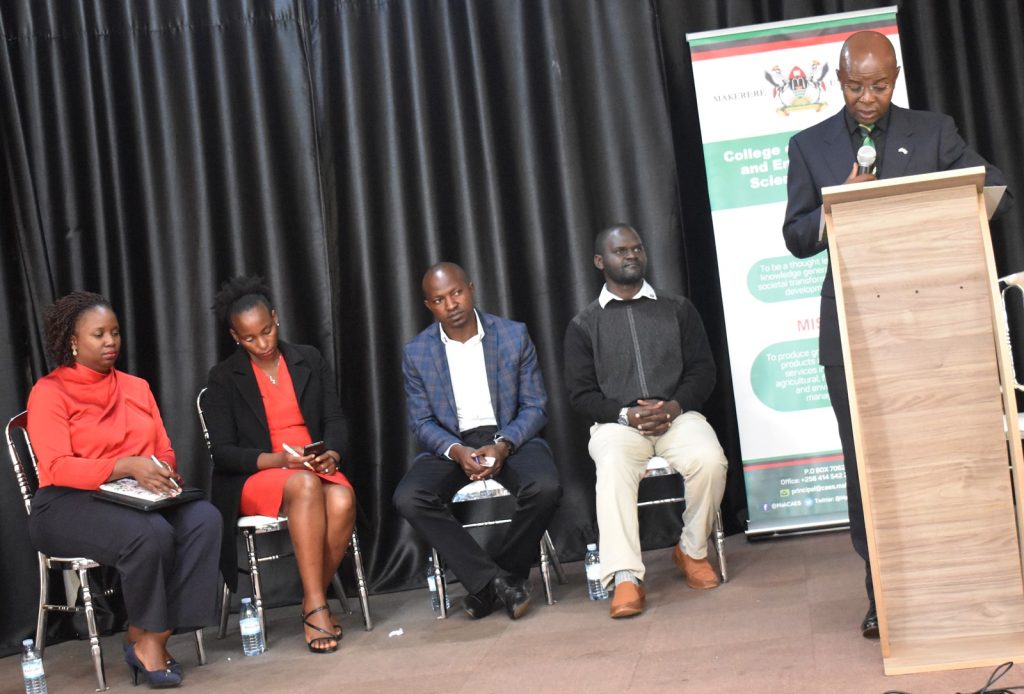
EAPI is a multi-year project conceptualized under the guiding principles of Makerere University Strategic Plan, which emphasizes research excellence, community engagement, and innovation. It is funded by the Government of Uganda through Makerere University Research and Innovations Fund (Mak-RIF). According to the project PI, Dr Julia Kigozi, achieving the country’s industrialization agenda requires interventions to enhance the capacity of agro-processors to compete in the domestic, regional and international markets. The project which is now in its second phase uses the modified Triple Helix Partnership model; The Agro-processing Pro-model in which Academia-Industry-Government interact jointly to serve the needs of the Micro, Small and Medium Scale Enterprises (MSMEs) and is coordinated by a team comprising of Academic staff at Makerere University and industry leaders from UNBS and UEPB.
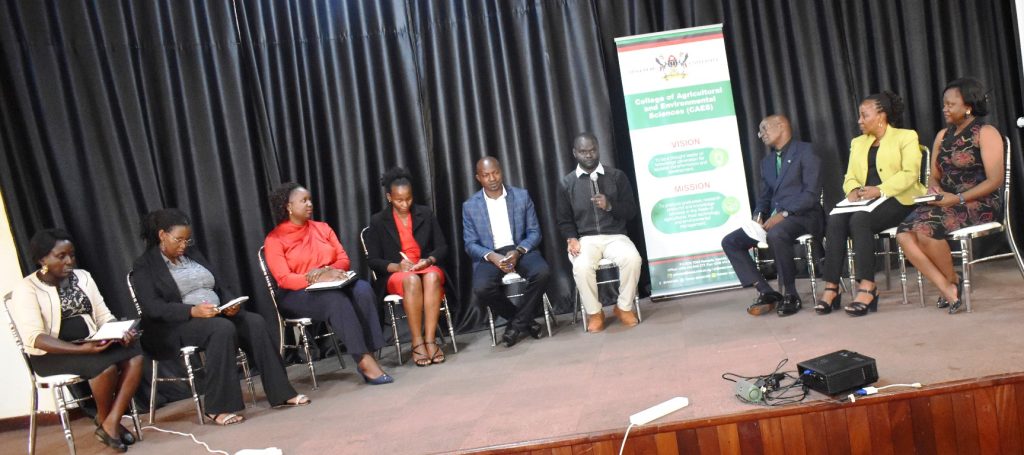
The direct beneficiaries of the project are agro-processors and Makerere University students in the School of Food Technology, Nutrition and Bio- engineering. In July 2023, the project graduated 35 students from the School, and in February 2024, Makerere University-SFTNB in partnership with UNBS, UEPB and Uganda Revenue Authority trained 22 Agro-processors to enable them develop and improve agro-manufacturing processes leading to products that meet quality standards and where possible expand their business operations to local and export markets. The processors were mainly manufacturers of juices, dairy products, spices, and pastries with facilities located in Kampala/Greater Kampala area and Wakiso, Jinja, Mpigi, Mityana, Kabaale, Gulu, and Nwoya Districts.
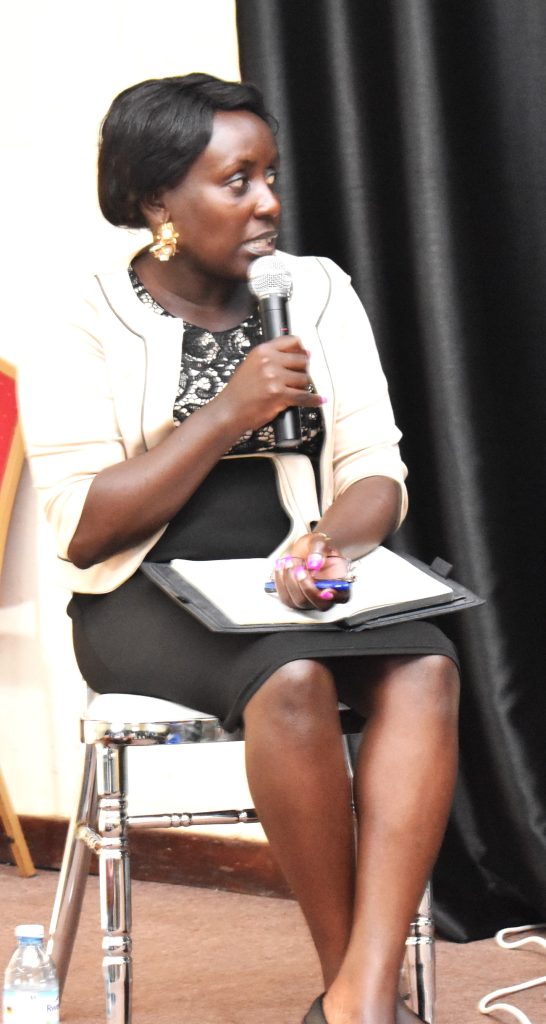
Project dissemination workshop
On 9th April 2024, the School of Food Technology, Nutrition and Bio-engineering held a workshop to disseminate the project outputs and to share insights, best practices and success stories from the trained processors and students. The event held at Makerere University featured a panel discussion involving agro-processors as well as representatives from line departments who shared experiences and the challenges affecting the sector. Key amongst the challenges highlighted was the bureaucratic process of acquiring certification and the heavy taxes imposed on the processors.
Message from the Vice Chancellor
In his message delivered by Prof. Edward Bbaale, Director, Research and Graduate Training at Makerere University, the Vice Chancellor, Prof. Barnabas Nawangwe commended the project team for the achievements registered. “This project epitomizes the spirit of innovation, collaboration, and excellence that defines Makerere University. It has demonstrated the power of collaboration, innovation, and community engagement in driving positive change and fostering inclusive growth. Moving forward, let us continue to harness our collective strengths and expertise to address the evolving challenges in the agro-processing sector.” The Vice Chancellor further noted that the project had exemplified the University’s commitment to student-centered learning and practical skills development. “By actively involving undergraduate students from the School of Food Technology, Nutrition, and Bio-engineering in mentorship activities, we not only enhanced their academic experience but also provided them with valuable real-world insights and opportunities for professional growth.” He appreciated the Government of Uganda for the enormous support towards research at Makerere University.
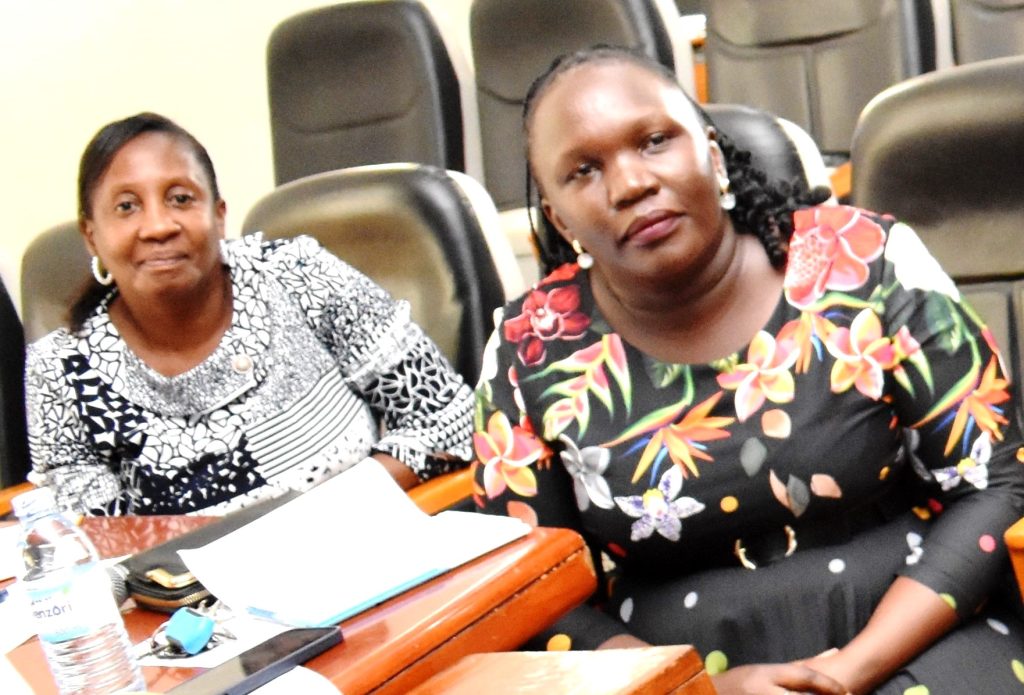
Addressing participants, the Principal of CAES, Prof. Gorettie Nabanoga applauded the project team for the initiative, noting that the College was intentional on co-creating processes that would support the growth of the agricultural sector. “As a College, we have a role to contribute to the National Development Agenda. Much as we have done research, there is little knowledge transfer. Our goal is to link all departments to industry and to re-orient students to change their mind-set through a learner-centred approach geared towards solving specific challenges. We commit to continue providing the necessary knowledge to take agro-processors to the next level, and to engage the private sector to co-create solutions for challenges undermining development in our country.”
Agriculture & Environment
Two Slots For Student Study Exchange Programme at University of Padova, Italy
Published
2 weeks agoon
April 5, 2024By
Mak Editor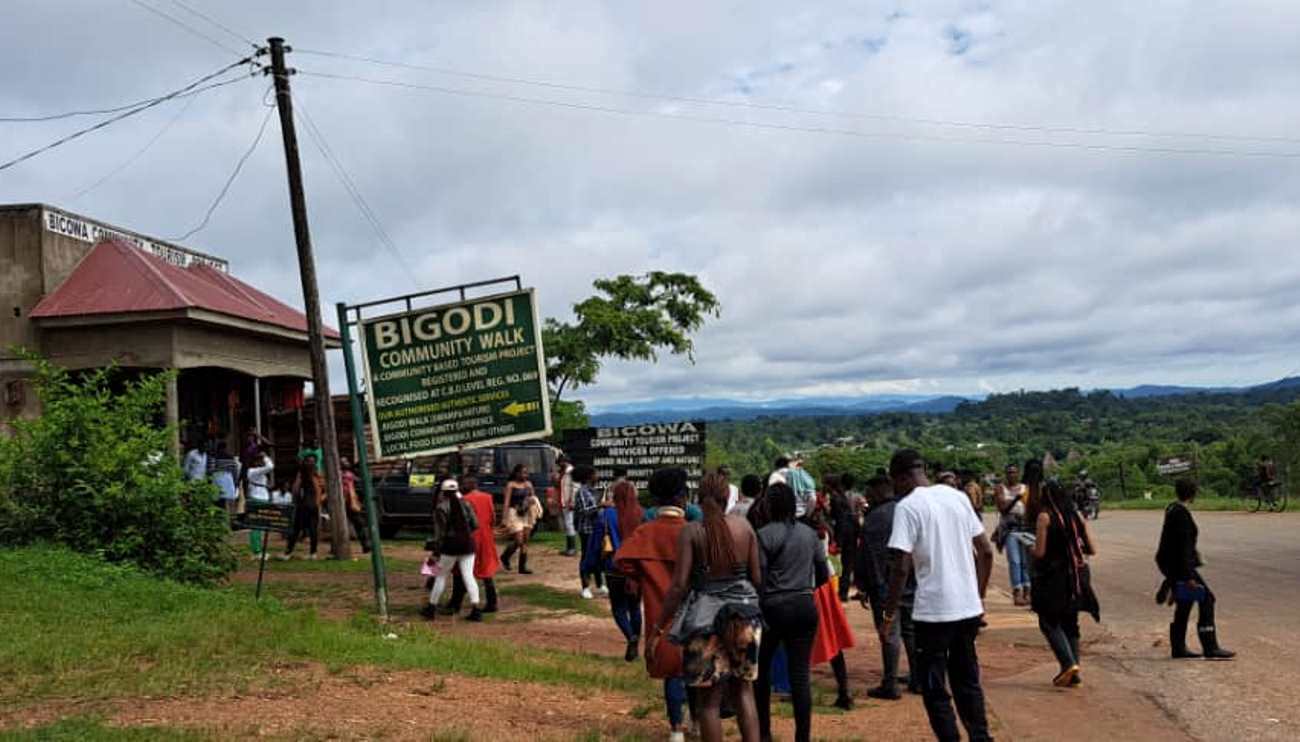
Agreement Overview
An inter-institutional cooperation agreement was signed between the University of Padova, Italy and the Makerere University, Uganda, under the umbrella of the Erasmus+ mobility program. This agreement includes a bi-lateral exchange of teaching staff and students aimed at sharing knowledge and technologies, to explore the degree to which invasive alien plants are modifying the ecosystem services provided by complex agricultural and forest landscapes, using invasive trees as model species. Researchers at the University of Padova have explored the biodiversity of several ecosystem components, and related functions of woodlands composed of important alien trees (the black locust tree – Robinia pseudoacacia) in several biomes of Europe. This tree is spreading due to historical plantation and recent land use changes. The impacts brought by this tree are contrasting and not straightforward, particularly when analyzed from different perspectives. We expect that similar patterns could exist, currently or in the near future, in several regions of Uganda. The research will also investigate how changing landscapes and related ecological processes, as a result of plant invasion, affect the ecotourism opportunities and the aesthetics of tourism destinations with specific focus on Ruboni Community Camp and Rwenzori Mountains National Park. We believe that this cooperation could help in the understanding of this phenomenon and explain how different stakeholders perceive the novel values that come with invasive alien trees.
Student study exchange opportunity in Italy
The ERASMUS + International Credit Mobility Programme (KA171) will support two students for year 2024 for study exchange programme in Italy at the University of Padova, Department of Department of Land, Environment, Agriculture and Forestry. The exchange programme targets Masters or PhD students in the College of Agricultural and Environmental Sciences at Makerere University who have finished their first year of study for Masters or fully Registered for PhD. Prospective students must be ready to do research on topics related to the major focus of the agreement i.e. Forestry (forest soils) and Ecosystem services (agroecosystems, landscapes and tourism). They should have skills in processing of data on soil and social data analysis. Masters Students should have normal progress in their coursework. Together with University of Padova team supervised by Professor Tommaso Sitzia, successful applicants will attend term courses, attend field excursions with other students and get involved in analysis of soil samples and social data collected from Ruboni Community at the foothills of Rwenzori Mountains. The travel and stay in Italy will take a period of about 4 months.
Benefits
The exchange programme will cover travel expenses to and from Italy, living costs and accommodation while in Italy.
Expected deliverables from the student
Upon securing this opportunity, the students will be required to;
- Analysis of soil samples and social data (agroforestry tourism)
- Analysis of data collected from tourists on agroforestry landscapes in Mubuku Valley and drafting of manuscript (to be collected between May and August, 2024)
- Participate in term courses and excursions with Forestry Science students
- Attend workshops and make presentations on their research activities
- Any other study activities related to the research topics of the study group
Criteria
Interested candidates should submit their application to the Departmental Flow Co-ordinator, Makerere University. Include a detailed CV, testimonial showing current progress, copy of admission letter, a letter of motivation, a recommendation letter, copies of the academic documents. Applications must be submitted by 22, April, 2024 to: kamunyu.muhwezi@gmail.com, copied to deus.muhwezi@mak.ac.ug. Female candidates are particularly encouraged to apply. Only applications that include ALL the required documentation (highlighted above) will be considered. Successful applicants will be called for oral interviews. Successful applicants will be nominated to the exchange programme by the Departmental Flow Co-ordinator at Makerere University by 30th April, 2024. The final decision on admission and subsequently acquiring the study exchange opportunity will depend on fulfilment of the requirements for admission for exchange at University of Padova.
Contact details for further information
Dr. Deus Kamunyu Muhwezi
Department of Forestry, Biodiversity and Tourism,
Makerere University
kamunyu.muhwezi@gmail.com
Agriculture & Environment
PhD Scholarship Opportunities on the ‘Agroforestry for People, Ecosystems and Climate (AfPEC) Project’
Published
1 month agoon
March 20, 2024By
Mak Editor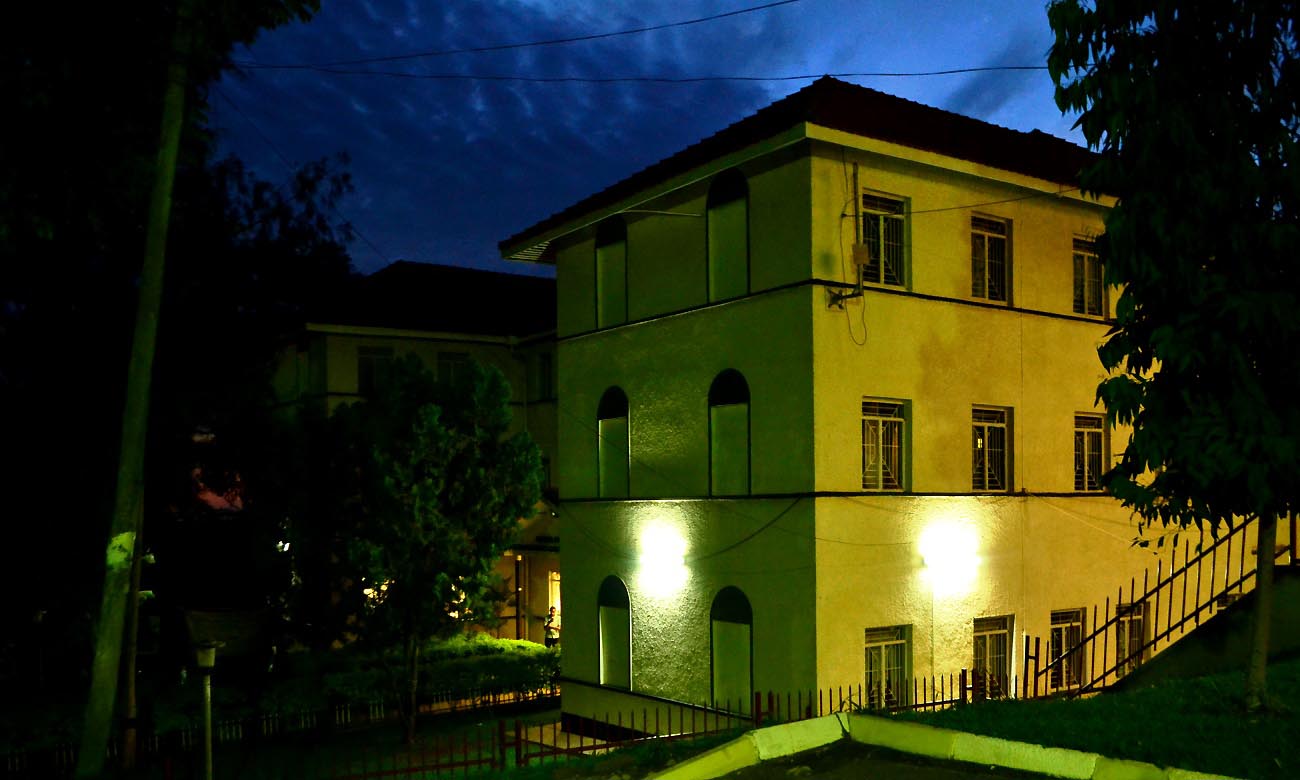
Makerere University, through the Department of Environmental Management, and the Department of Geography, Geoinformatics and Climatic Sciences, and in collaboration with the universities, Aarhus University and University of Copenhagen of Denmark, is implementing a DANIDA funded project ‘Agroforestry for People, Ecosystems and Climate (AfPEC) (2024 – 2029), (https://afpec.info/about-afpec/). AfPEC aims to document the potential of agroforestry in arabica coffee farming for ecosystem goods and services, improved livelihoods and long-term sustainable development on the fragile Mount Elgon Ecosystem in Eastern Uganda.
The overall outcome of AfPEC will be a deeper understanding of the realized and potential future benefits of agroforestry in highland arabica coffee cultivation.
Considering the importance of coffee production in Uganda, and the international demand for sustainable quality coffee, there is a high need for applied and accessible research on agroforestry coffee production.
To this end, this project is now inviting suitable candidates to apply for 4 competitive PhD scholarships covering the following research themes.
Theme 1: Ecosystem services
Collection and analysis of quantitative empirical data to document the impact of agroforestry on ecosystem services, especially biodiversity, carbon storage and climate mitigation, but also other ecosystem services such as soil quality, nitrogen fixation, erosion, shade, water retention and pest control. A combination of biological, socioeconomic and ethnobiological data will be collected.
Two PhD students will be involved:
- One will focus on biodiversity and other ecosystem services, and
- The other one, will focus focus on climate adaptation and mitigation
Theme 2: Livelihoods and stewardship
Collection and analyses of empirical data on different agroforestry-based livelihoods and value chains, including income from coffee production. The livelihood analysis will include baseline scenarios, scope and barrier analysis (https://www.planvivo.org/baseline-scenario). These will be followed up by a well-developed process for monitoring value addition from improved agroforestry systems, business development and organizational strengthening https://www.forestsoftheworld.org/files/MRV2021en.pdf. Gender and youth aspects will be assessed for all livelihood and value chain analyses.
Two PhD fellowships are advertised under this theme:
- One PhD will focus on livelihood benefits and value chains, and
- The other one on incentives to promote stewardship and motivation, participatory integrated planning tools and wider societal and policy needs for promoting shift in agroforestry.
MAIN TASKS OF THE CANDIDATES
Successful applicants will register at Makerere University and will undertake the following tasks:
- Spend six (6) months in Denmark at Aarhus University or University of Copenhagen to refine their research proposals, review literature, participate in seminars and take some methodological courses.
- Collect and analyze data
- Produce a PhD thesis, based on 3-4 peer-reviewed articles published in key international journals
- Disseminate results in scholarly journals and at national and international conferences.
- Be an active participant in the day-to-day project activities.
ELIGIBILITY REQUIREMENTS, QUALIFICATIONS AND EXPERIENCE
The applicants should have completed a Master’s degree in Natural Sciences, Environmental Sciences, Geographical Sciences, Economics, Sociology, Anthropology, Development Studies, or any other closely related subject.
Applicants should have an excellent academic and educational record (an average of B for the Masters), strong analytical (Knowledge of quantitative and qualitative research methods) and writing skills (e.g. evidence of peer-reviewed publications or previous research experience will be an advantage).
Successful applicants will be expected to contribute to the project’s publication targets and will be encouraged to publish in international, peer-reviewed ISI journals. The candidates should be able to work independently but also as part of the project team.
Age limits: Not more than 40 years (female applicants) and 35 (male applicants) at the time of application.
WHAT THE SCHOLARSHIP COVERS
The PhD scholarship will cover tuition fees for a period of four years. The scholarship will provide a modest stipend. Research and travel expenses to and from Denmark will be covered by the project.
EXPECTED START DATE
Successful candidates will receive notification by 15th May 2024. After that, they are expected to develop their research proposals with the guidance of their supervisors, and to follow Makerere University’s procedures to apply for admission to the PhD Programme.
The planned starting date is 1st July 2024. The PhD contract will include a trial period of 4 months during which the candidates will be expected to register at the University.
HOW TO APPLY
Interested applicants should submit applications by e-mail to the respective theme leaders by 15th April 2024.
For theme one (1): Prof John Tabuti, Department of Environmental Management, Email: jtabuti@gmail.com, with a copy to Prof. Frank Mugagga (fmugagga@gmail.com)
For theme Two (2): Prof. Frank Mugagga, Department of Geography, Geoinformatics and Climatic Sciences, Email: fmugagga@gmail.com, with a copy to Prof. John Tabuti (jtabuti@gmail.com).
The application should include
- A brief statement of interest or cover letter describing your motivation to apply
- A concept of no more than 5 pages (page format A4 with 2.5 cm margins, single spacing and Times New Roman 12-point font) outlining the thematic focus and specifying how it relates to the overall project, research questions, methodological and theoretical focus, a timeframe of activities and a list of expected outputs. The concept should include suggestions for case studies.
- Curriculum vitae (CV), relevant academic transcripts and diplomas (Degree certificates and certified transcripts of academic degrees).
- A copy of the master’s thesis.
- Publications or any other relevant research work can be included. It is often difficult to judge the applicant’s contribution to publications with multiple authors, hence a short description of the applicant’s contribution must be included.
- Contact information (with phone numbers and e-mail addresses) for two persons who may act as references.
The selection process: Applications will be evaluated by a committee and suitable candidates will be invited for interviews.
This call is subject to equal opportunities for all, and qualifying women and candidates with disabilities are encouraged to apply.
Trending
-
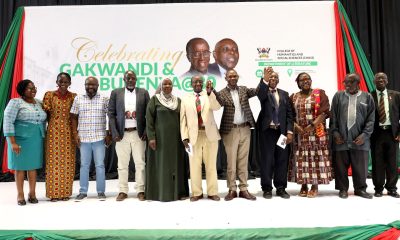
 Humanities & Social Sciences2 weeks ago
Humanities & Social Sciences2 weeks agoMak Luminaries Call for the Promotion of Humanities & Literature in Uganda’s Education System for a Balanced Citizenry with Human & Moral Values
-
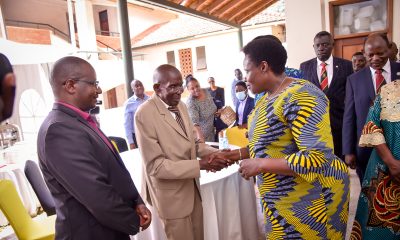
 General3 days ago
General3 days agoProf. Justin Epelu-Opio, Our Longest Serving DVC Rests
-
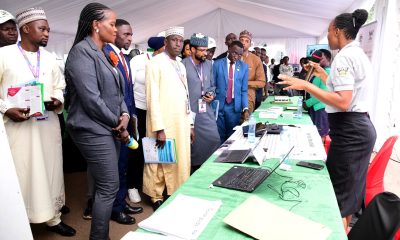
 Computing & IS2 days ago
Computing & IS2 days agoFree Course: Introduction to Data Science Course
-
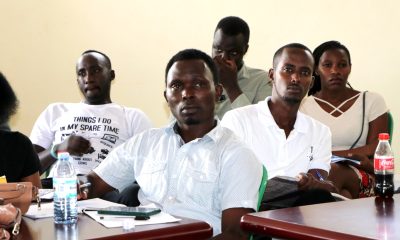
 Veterinary & Biosecurity1 week ago
Veterinary & Biosecurity1 week agoCareer Guidance session for finalist students held at CoVAB
-
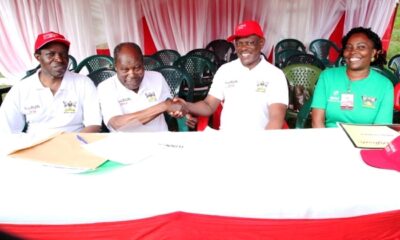
 General3 days ago
General3 days agoDr. Martin Aliker – Celebrating A Life Well Lived
